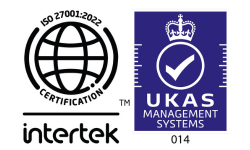Workplace emergencies can strike without warning, whether it’s a fire, cyberattack, a violent incident, or a major operational failure. When that happens, HR has a role in ensuring business continuity, safeguarding employees, and driving a calm, coordinated response.
HR professionals help manage crisis effectively, learn the importance of proactive planning, and how PayEscape’s HR consultancy services support businesses in building resilient teams and robust crisis policies.
Why Crisis Management Matters in HR
Crisis management isn’t just about how employers or HR teams react to emergencies, it’s about being prepared, ensuring your team knows what to do, and making sure employees feel safe and supported. Without proper systems in place, businesses risk confusion, legal trouble, reputational damage, and employee disengagement.
In a crisis HR teams are responsible for:
- Developing emergency communication plans
- Supporting leadership through people-related decision-making
- Managing employee welfare and mental health
- Coordinating with other departments to minimise disruption
Key Types of Workplace Emergencies HR Must Prepare For
- Natural disasters: Fires, floods, or weather-related disruptions
- Cybersecurity breaches: Data leaks or ransomware attacks affecting HR systems
- Violence or threats: From internal incidents to external threats on-site
- Health emergencies: Contagious illnesses or injury on premises
- Operational crises: Redundancies, leadership loss, or sudden restructuring
Each of these scenarios requires fast decision-making, clear communication, and a strong understanding of people planning and costing. If you feel you need help with dealing with these situations then get in touch with our HR consultancy services online today.
1. Establish a Crisis Response Framework
The first step is preparation. A well-developed HR crisis management framework includes:
Risk Identification and Assessment
Regularly audit potential risks in your workplace, from physical threats to technology vulnerabilities. Factor in people planning and costing to understand how crises might affect staffing needs and expenses.
Clear Policies and Procedures
Every employee should know what to do in a crisis. HR must develop and communicate policies for evacuation, communication, remote working, and employee support.
Employee Training
Use leadership development management to prepare your managers for crisis scenarios. Train them to keep calm, follow protocols, and support their teams effectively.
Communication Plans
Create templates and chains of command for internal and external communication. HR should lead messaging to ensure it’s accurate, timely, and empathetic.
2. Support Business Continuity and Change
During a crisis, HR is key to business change management. Whether transitioning to remote work during a pandemic or restructuring after financial loss, HR must support employees and leadership through change.
Use HR Consultancy Services
PayEscape’s HR consultancy service gives businesses access to expert guidance on navigating difficult changes. From managing layoffs to restructuring teams, our consultants help you align your people strategy with business continuity plans.
Scenario Planning
Proactively model crisis scenarios and map out their impact on workforce needs. PayEscape’s people planning and costing tools help businesses understand how staffing levels, skill sets, and budgets may shift during a crisis.
What is HR’s role during a crisis?
HR is responsible for safeguarding employees, communicating policies, supporting leadership, managing workforce changes, and helping the business return to normal.
How can HR prepare for emergencies?
By developing a crisis management plan, training employees, maintaining up-to-date communication protocols, and using HR software to support response and recovery efforts.
What should be included in a workplace crisis policy?
Evacuation procedures, emergency contacts, communication steps, data protection rules, mental health support plans, and employee responsibilities.
3. Build and Maintain an Asset Protection Policy
Protecting your people and your systems is central to effective crisis response. HR policies should outline how employee data, safety, and mental wellbeing will be protected during emergencies.
PayEscape helps build comprehensive employee asset policies, ensuring:
- Staff safety protocols are embedded into everyday operations
- Employee data is secure during IT disruptions
- Mental health support is provided post-crisis
- Employees are trained and aware of emergency procedures
- Our software and consultancy services work together to embed protection policies into your wider HR strategy.
4. Post-Crisis: Recovery and Reflection
After the immediate threat passes, HR leads the recovery phase:
- Debrief: What worked and what didn’t? Review the response plan.
- Employee support: Offer counselling, flexibility, and ongoing communication.
- Policy updates: Revise emergency plans based on lessons learned.
PayEscape’s HR management solutions help train your leaders to support their teams during post-crisis rebuilding and prevent future failures through stronger team resilience.
How PayEscape Supports HR in Crisis Management
PayEscape provides everything your HR team needs to build a proactive crisis management strategy:
- HR Consultancy Service: Our expert consultants work with you to create crisis-specific HR frameworks that comply with UK legislation and industry standards.
- Business Change Management Support: We guide you through complex transitions, helping minimise disruption while ensuring teams remain engaged and operations stay compliant.
- Leadership Development Management: We offer tools and training to develop strong, crisis-ready leaders who can guide their teams through uncertain times.
- People Planning and Costing Tools: Get clear visibility into the human and financial impact of any crisis scenario. Our tools help you plan accurately and adjust in real time.
Final Thoughts
Workplace emergencies are inevitable. What matters is how prepared your HR team is to respond. With the right systems, training, and technology in place, you can turn a potential crisis into a moment of resilience and leadership.
Partner with PayEscape to futureproof your crisis management strategy. From business change management to leadership support and people planning, our HR services help you protect your most valuable asset, your people.
















